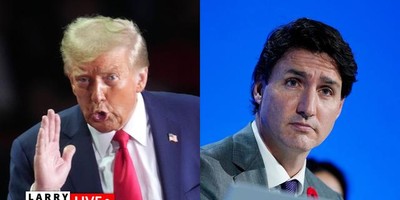Barack Obama has a curious definition of "non-ideological." He's insisting on bipartisan support for a stimulus package that will cost more than anything Uncle Sam has ever bought, save perhaps for victory over the Axis powers. He says he wants "to put good ideas ahead of the old ideological battles" and doesn't care whether they come from Republicans or Democrats. But he also says that "only government" can pull us out of this crisis.

It's like Henry Ford's line that you could buy any color car you wanted, as long as you wanted black. Obama is interested in any idea, as long as its peddler starts from the same "non-ideological" assumption that government experts know best.
In fairness to Obama, there is a huge consensus around the notion that government must do, well, something -- something big. Conservative economists such as Harvard's Martin Feldstein support a stimulus package. Heck, Senate Minority Leader Mitch McConnell passes for a fiscal conservative these days because he opposes any bill of more than $1 trillion.
It's the consensus that scares me. Chin-stroking moderates and passionate centrists often glorify consensus to the point where they sound like it's better to be wrong in a group than to be right alone -- an example of ideological dogmatism as bad as any.
Obviously, consensus can be good. But it also can lead to dangerous groupthink. Everyone knew that Iraq had weapons of mass destruction. Everyone at "60 Minutes" knew those memos about George W. Bush and the Texas Air National Guard had to be right. Everyone knows everything is right, until everything goes wrong. If that's not one of the great lessons of the financial collapse of 2008, I don't know what is.
Recommended
Last fall, the smartocracy said the Treasury Department had to be given $700 billion for the Troubled Asset Relief Program because the government had to buy all that bad paper right away. Since then, Treasury has bought no toxic assets, done nothing to help with foreclosures and, a congressional report released Friday revealed, can't adequately explain what it did with the first $350 billion.
The current climate reminds former Freddie Mac economist Arnold Kling of the battle of the Somme in World War I (a war everyone knew would be over in six months). "Having experienced nothing but failure using offensive tactics up to that point, the Allies decided that what they needed to try was ... a really big offensive," Kling writes. "My guess is that in 1916, anyone who doubted his own ability to direct an enormous offensive involving hundreds of thousands of soldiers would never have made it to general. Similarly, today, anyone who doubts the ability of a handful of technocrats to sensibly allocate $800 billion would never make it into government or the mainstream media."
That might overstate it a bit, because some naysayers can be heard. Economist Kevin Hassett of the American Enterprise Institute notes that whatever the benefits of the proposed stimulus, they probably don't outweigh the enormous costs of the debt we would incur. As a result of the stimulus, the deficit this year would equal the total cost of the federal government in 2000. That's on top of $7.76 trillion in bailouts pledged by the government, according to Bloomberg.com.
The real reason the stimulus package will be gigantic is not that the smartest people with the best ideas say it needs to be. It's that Obama's real priority is to get the bill out as quickly as possible, which means every constituency gets something, including Republicans. Indeed, Republicans are a priority because if he can bribe them into supporting the bill, that might prevent them from campaigning against it in 2010 if it proves ineffective or counterproductive. Hence Obama's proposed billions in tax breaks for corporate welfare addicts and the lobbyists who love them. Democrats are justly skeptical about a tax break for a company that decides not to lay off its workers.
The GOP is right to question this "shovel-ready" infrastructure "investment." From World War II to the early 1990s, according to economist Bruce Bartlett, not a single stimulus bill succeeded at moderating the recession it was aimed at, while many bills helped invite the next recession. Bartlett supports a stimulus in theory (as do I); he merely notes that the political process tends to be just that -- a political process -- and it produces political results.
The best stimulus might be to trim -- or temporarily eliminate -- the payroll tax. That would put money in the hands of the people who need it -- and know best how to spend it. But that would be "too ideological" because it rejects the assumption that government knows best, and it would reward taxpayers, not politicians.
























Join the conversation as a VIP Member